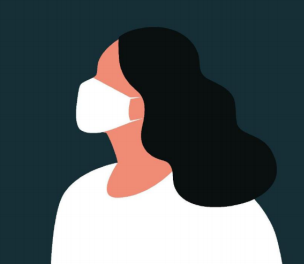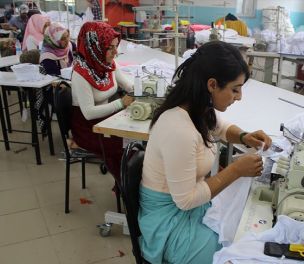Photo: AA
Click to read the article in Turkish
Women have done four times more unpaid work than me during the coronavirus pandemic, according to a study supported by the United Nations Development Program (UNDP).
"Despite the rise in men's contribution to household chores, women shouldered most of the household labor, doing nearly four times as much unpaid work as men," İpek İlkkaracan, who helped prepare the survey, told the state-run Anadolu Agency.
Men take on more chores
She said the study shows when working hours are reduced to reasonable levels or remote working is promoted in Turkey, men will take on more chores, stressed İlkkaracan, a lecturer at Istanbul Technical University.
School closures, rising demand for household consumption items, and domestic and care services triggered an unprecedented increase in the demand for household labor for both men and women, found the survey, done in Turkey this May with help from pollster KONDA as lockdowns were in effect across much of the country.
The survey underlined that women's total workload – paid and unpaid work combined – remains higher than that of men.
The study found that as a result of changes in work patterns, and mainly due to a fall in men's paid work hours, the gender gap in paid work narrowed under the pandemic lockdown, but gender gaps in unpaid work and total work time in couple's households grew even larger.
Women work more than 10 hours a day
For employed women, who continue to work in the workplace, the total work time was longer than 10 hours per day.
"This may affect women's employment negatively as they will be reluctant to continue working in these conditions, which results in lower life quality for women and increased gender inequality," İlkkaracan stressed.
She noted that some 50 percent of women struggle to cope with this burden, while only half of the men – 24 percent – said the same.
"Bearing such a heavy burden of household chores weakens their commitment to their paid work, as it is not sustainable," İlkkaracan said.
"An equal sharing of chores is the key to gender equality in the labor market between men and women."
The survey showed that women are nearly twice as likely to switch to working from home compared to men and also had less access to paid leave.
Employed women face higher risks of infection
While nearly twice the number of men as women reported employment disruption due to the pandemic, employed women face higher risks in this regard, the survey found.
"Women had to switch to remote working to set a balance as schools closed and due to not having external support for elderly, ill, and disabled care," İlkkaracan explained, as women normally end up shouldering this burden not normally counted in most economic models.
She also stressed that 85 percent of women and 65 percent of men in couples believe that household work should be shared more equally between genders.
"This ratio is 89 percent for employed women," İlkkaracan said.
The study also called for changes to workplace and social care policies to redistribute unpaid care and domestic work.
"The economic administration should "allocate a reasonable amount for social care work, which will also create employment." (EMK/VK)









